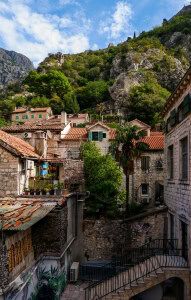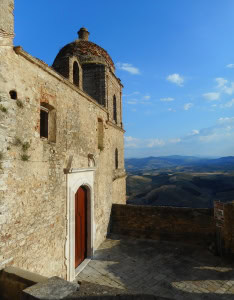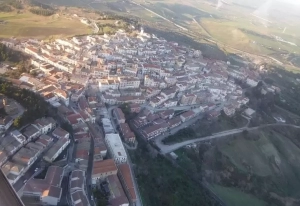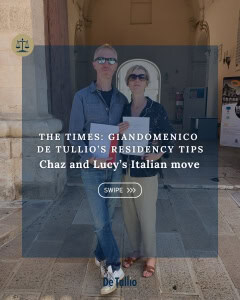Puglia Property Investment: Finding the Best Rental Opportunities
Sun-drenched Puglia has become a prime destination for property investments, attracting travellers seeking authentic stays and investors looking to capitalize on its thriving short-term rental market. Moreover, as interest grows, Puglia property investment is quietly emerging as one of the most sought-after opportunities in Italy.
In fact, with more visitors choosing vacation rentals over hotels, the region presents a lucrative opportunity for those eager to turn property ownership into a profitable venture. Consequently, foreign buyers are eagerly acquiring charming homes and transforming them into successful rental businesses.
Meanwhile, Puglia’s enchanting mix of history, coastline, culinary delights and culture continues to attract everyone from celebrities to adventure seekers. In this post, we’ll guide you through the best locations and, in addition, highlight key legal considerations for short-term rentals in this beautiful region of Italy.
Get in touch for a free consultation and let us guide you toward a successful investment in this beautiful region.
Puglia Property Investment: Salento
Otranto
A historic seaside town with beautiful beaches and a charming old town, Otranto offers a unique combination of natural beauty and cultural heritage. On average, property prices here are €2,412 per square meter, making it an appealing option for those seeking a blend of history and coastal living.
Porto Cesareo
With its stunning beaches, such as Torre Lapillo and Punta Prosciutto, Porto Cesareo is a coastal town that draws visitors from around the world. With an average property price of €1,603 per square meter, it’s a popular destination for those looking to invest in beachside properties.
Torre dell’Orso
Famous for its crystal-clear waters and rocky cliffs, Torre dell’Orso is home to the breathtaking Grotta della Poesia. Here, property prices average €1,474 per square meter, offering an ideal opportunity for those looking for a tranquil coastal retreat.
Gallipoli
A lively coastal city boasting golden beaches and vibrant nightlife, Gallipoli is a hotspot for young tourists and a dynamic real estate market. The average property price in Gallipoli is €1,922 per square meter, reflecting its status as a popular destination.
Torre di San Giovanni
This small coastal village, welcoming over 50,000 visitors in the summer, features white sandy beaches and turquoise waters. With an average property price of €1,008 per square meter, it presents a more affordable option for buyers in search of a peaceful seaside lifestyle.
Pescoluse & Torre Pali
The “Maldives of Salento,” Pescoluse is famous for its clear waters and soft sand dunes. Torre Pali, offering a quiet seaside retreat, is located near Santa Maria di Leuca. In Salve, property prices average €1,570 per square meter, offering good value for those seeking idyllic coastal living.
Santa Maria di Leuca
A famous tourist destination, Santa Maria di Leuca is known for its breathtaking caves and monumental waterfall. With property prices averaging €1,735 per square meter, it’s a great location for those looking to invest in a charming, picturesque area.

Itria Valley and Puglia Property Investment
Bari
Bari, Puglia’s capital, has transformed into a vibrant cultural hub. The city showcases historic landmarks like the San Nicola Basilica and the iconic Petruzzelli Theatre, blending rich history with modern charm. Buyers can expect property prices to average €1,570 per square meter, offering strong potential for urban investments.
Polignano a Mare
Polignano a Mare, the “Pearl of the Adriatic,” impresses with dramatic cliffs and stunning sea views. Tourists flock here year-round, driving property prices to an average of €2,855 per square meter and making it a sought-after investment destination.
Monopoli
Monopoli offers a peaceful atmosphere, with whitewashed buildings, medieval fortifications, and lively nightlife. Investors find property prices averaging €2,398 per square meter, making it ideal for those seeking both tradition and vibrant coastal living.
Ostuni
Ostuni, nicknamed “The White City,” dazzles with its striking white architecture and breathtaking views from its hilltop perch. Buyers typically pay around €2,824 per square meter, attracted by the town’s unique character and scenic beauty.
Locorotondo, Cisternino, Martina Franca & Alberobello
These medieval towns charm with winding streets, historic palaces, and picturesque countryside. Property prices range from €1,338 per square meter in Locorotondo to €1,986 in Alberobello, famous for its iconic trulli houses. Investors appreciate the diverse opportunities these towns offer for authentic Puglian living.

Legal Requirements for Tourist Rentals in Puglia
Short-term rentals in Italy are governed by the national tourism law, but they are also subject to specific regional regulations. In Puglia, the laws allow individuals to rent up to three properties as a non-business activity, making it an attractive option for smaller-scale investors. However, if you wish to rent more than three properties, you will need to register as a business and comply with additional regulations. Thus, understanding these legal distinctions is crucial to ensuring your rental operations are both compliant and profitable.
To discuss your situation, get in touch for a free consultation, or click here to get all our FREE guides for foreigners planning to renoveting, buy, sell or live in Italy.
Key Regulations for Puglia Property Investments
- Properties must meet all technical, hygiene, and safety standards.
- A National Identification Code (CIN) is required for each rental.
- A Certified Notification of Activity (SCIA) must be submitted, even for private rentals.
- Rentals must have an Energy Performance Certificate (EPC) and a certificate of habitability.
- A minimum stay of two nights is mandatory.
- Properties must have gas and carbon monoxide detectors and fire extinguishers.
- Owners must register guests with local authorities, even for stays under 24 hours.
Puglia Property Investment: Taxation and Rental Agreements
When investing in Puglia’s short-term rental market, it’s essential to understand the tax obligations tied to rental income. First and foremost, all rental income must be declared for tax purposes. For non-business landlords, there is the option to choose Cedolare Secca, a simplified tax regime with a fixed rate of 21% for the first property and 26% for any additional properties. This option, however, is only available under specific conditions and can offer significant tax advantages.
On the other hand, business operators engaged in rental activities on a larger scale must register for VAT. In addition to this requirement, they are obligated to follow standard taxation rules, which include regular VAT filings as well as compliance with broader fiscal regulations. Therefore, understanding your status as a landlord—whether non-business or business—is crucial to ensuring proper tax compliance.
Why Due Diligence is Crucial for Property Investments in Puglia
Before making a purchase, it’s crucial to be aware that many properties in Puglia come with legal or structural issues. To avoid potential complications, buyers should ensure that the property is fully compliant with urban planning laws as well as possessing the necessary permits. In addition, the property needs to meet safety standards. Without proper compliance, renting the property will not be possible, which can significantly impact your investment plans.
Furthermore, attempting to legalize a non-compliant property can be both complex and expensive. Therefore, conducting thorough due diligence before finalizing any transaction is essential. By doing so, you can safeguard your investment and ensure a smoother path to generating rental income.
To discuss your situation, get in touch for a free consultation, or click here to get all our FREE guides for foreigners planning to renoveting, buy, sell or live in Italy.
Finally…
If you’re considering a Puglia property investment, it’s essential to have expert guidance throughout the process. With over 55 years of experience, our real estate lawyers specialize in assisting clients with property transactions in Italy. From conducting thorough legal checks to drafting and reviewing contracts, we ensure every step is handled with care, providing you with peace of mind. So, whether you’re a first-time buyer or an experienced investor, we’re here to help. Get in touch for a free consultation and let us guide you toward a successful investment in this beautiful region.

 The direct route between Bari’s Karol Wojtyla Airport and New York JFK will run weekly until October 15, 2025.
The direct route between Bari’s Karol Wojtyla Airport and New York JFK will run weekly until October 15, 2025.








